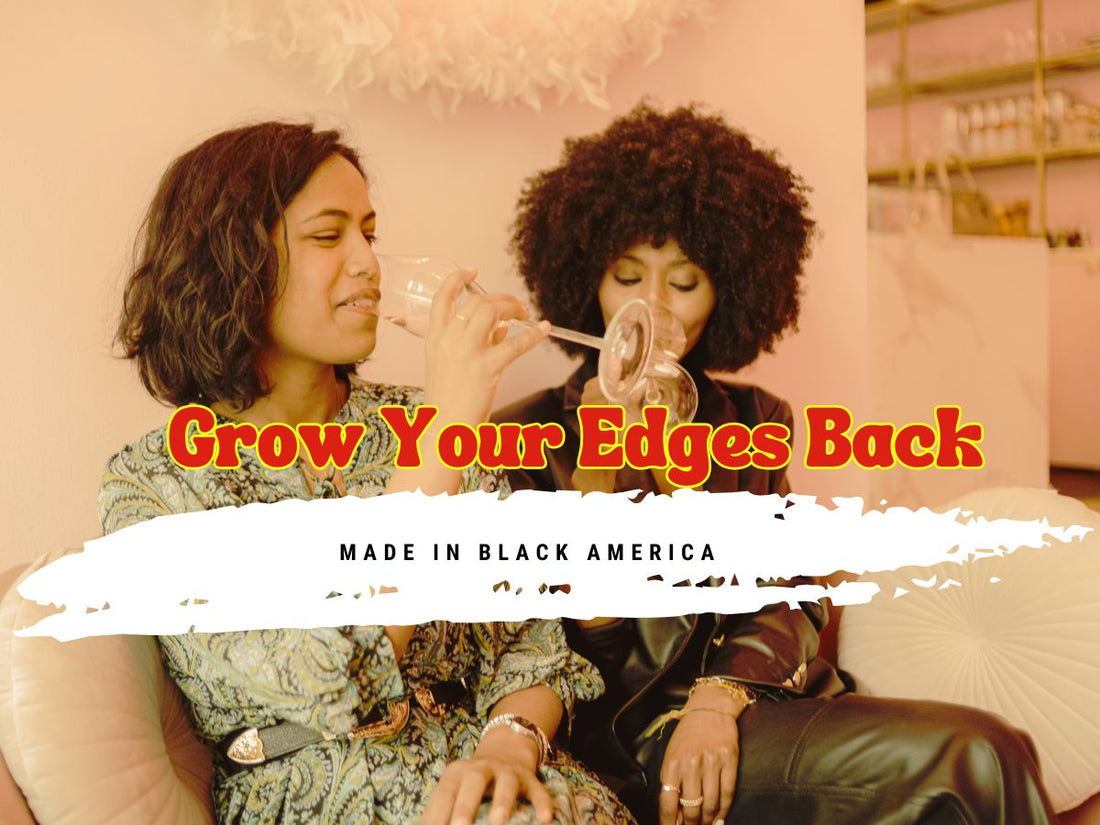
Kinky, Coily, Curly | Language that Loves Our Hair
The Words We Choose Matter.
Our hair has been called a lot of things.
Some of it loving.
Some of it loaded.
Some of it flat-out disrespectful.
But over the years, we’ve reclaimed the language: flipped it, remixed it, and built our own vocabulary of power.
We believe every crown deserves to be celebrated with care and clarity. That starts with how we talk about it. This post is a love letter to the language we use, and a reminder that our words, like our hair, are rich, layered, and beautifully rooted.
Let’s explore three of the most widely used inclusive natural hair terms—kinky, coily, and curly—and look at the culture, care, and comeback stories tied to each one.
1. Kinky: From Insult to Identity
Once upon a time, “kinky” was used to shame us. An insult wrapped in a smile, a word tossed around to suggest our texture was too wild, too rough, too much.
In Eurocentric spaces, “kinky” was the opposite of desirable. It was unmanageable. Unprofessional. Unwanted.
But something shifted.
Black women, especially during the natural hair movement in the early 2000s, started saying the word with pride instead of apology.
"Kinky" was no longer a slur. It was a statement.
Kinky hair, with its tight zig-zags and cloud-like density, became a badge of boldness. We leaned into it. Product lines started labeling their formulas for kinky textures. Stylists created full menus around 4B and 4C hair. We were no longer running from the word. We were standing in it.
💬 "I used to hate that word. Then one day, I looked at my fro and said, ‘Yep. That’s me.’ Now I wear it loud." – Tamara, 34, Oakland
2. Coily: A Term That Honors the Curl Without Comparison
“Coily” is one of those terms that feels soft on the tongue, but strong in intention.
It showed up in the natural hair space as a gentler, more accurate way to describe tightly wound curls that form spring-like shapes. Not quite “curly” in the traditional sense, but full of bounce, definition, and personality.
Where “kinky” had been roughened by history, “coily” emerged as a fresh, affirming alternative, rooted in clarity and care. For many, it feels scientific and stylish,less loaded, more loving.
It allowed people to talk about their texture without flattening it. It also gave stylists and product creators language to differentiate needs without ranking hair types.
💬 “When I heard the word ‘coily,’ I felt seen. Like finally, someone understands my strands don’t fall flat or spiral loose. They coil. And they’re perfect.” – Nia, 27, DC
3. Curly: A Word That Grew With Us
“Curly” has always been around. But for a long time, it didn’t include us.
When brands said “for curly hair,” they didn’t mean coils. They didn’t mean kinks. They meant waves and loose spirals that didn’t shrink or frizz in the rain.
But then we started showing up, and showing out.
From wash-n-gos to twist-outs, bantu knot-outs to shingling routines, we expanded what “curly” looked like.
And the language followed.
Now, “curly” isn’t limited to type 2 or 3 textures. It’s part of the broader natural hair vocabulary that embraces the full range of Black hair patterns, from soft spirals to tight coils to fluffy kinks.
In today’s inclusive spaces, “curly” is no longer code for “not too Black.” It’s a doorway term, and we’ve walked right through it, edges laid, coils popping, and curl pride intact.
💬 “My hair is curly. My way. Not loose, not straightened, not flattened to fit someone else’s idea of beauty. Just curly. And that’s enough.” – Joy, 41, Houston
Why Inclusive Natural Hair Terms Matter
Language creates space.
When we use terms like kinky, coily, and curly with care, we’re doing more than naming textures. We’re shaping how people feel about their own hair.
We’re telling our daughters they don’t have to soften who they are to be loved.
We’re reminding ourselves that our hair doesn’t need to be “fixed,” just supported.
And we’re holding brands, stylists, and media accountable for seeing all of us, not just some of us.
These words matter because our hair is personal, political, and powerful. And how we talk about it should reflect that.
At GYEB, We Don’t Rank Textures. We Respect Them.
We don’t play into “good hair” or “manageable” myths around here.
We believe all hair is good hair when it’s cared for.
That’s why our products and our content are designed with inclusion, not hierarchy, in mind. Whether your hair coils tightly or curls softly, shrinks up or hangs loose, we’re here to help you support it with confidence and consistency.
🛍️ Explore products made for every crown, from edge care to moisture-rich leave-ins, our full line is built for real textures and real routines.
👉🏾 Shop now
Use Language That Loves Without Limits.
As we keep redefining beauty on our own terms, let’s keep using words that reflect our truth, not someone else’s comfort.
Let’s keep saying kinky with pride.
Let’s keep calling our coils what they are: strong, soft, and worthy.
Let’s keep loving our curls out loud.
And let’s keep the conversation going.
✉️ Join the GYEB Community
Want more stories like this?
Tips, tools, and resources for growing strong, healthy hair on your terms?
Sign up for our email list and get early access to our best hair guides, sales, and real talk from women who get it.
Because your hair deserves more than products.
It deserves language that loves it back.

